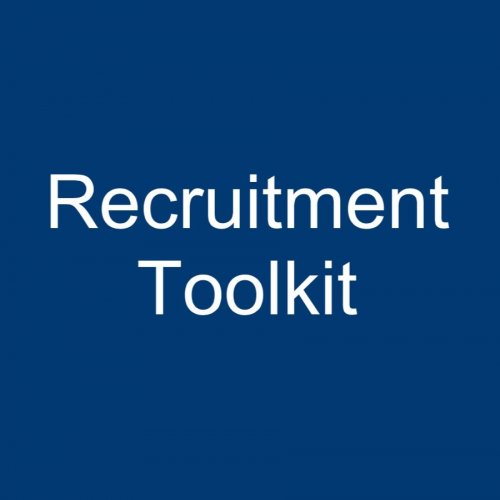-
Posts
634 -
Joined
-
Last visited
-
Days Won
42
Content Type
Profiles
Forums
Downloads
Events
Store
Everything posted by Tom Spencer
-
-
Networking Contact List View File This excel spreadsheet was prepared by Jason Oh, President of the Consulting Club at Wilfrid Laurier University in 2018. It provides a template for organising your networking contact list in order to network efficiently during the consulting application process. To stay in the loop by following us on LinkedIn, please click here. Submitter Tom Spencer Submitted 04/21/2018 Category Consulting Applications
-
Version 1.0.0
268 downloads
This excel spreadsheet was prepared by Jason Oh, President of the Consulting Club at Wilfrid Laurier University in 2018. It provides a template for organising your networking contact list in order to network efficiently during the consulting application process. To stay in the loop, please following us on LinkedIn here.Free -
View File Knowledge Management Basics Produced by Aneta Kosinska, this document provides you with the basics on knowledge management including: Expert views, The definition, Key challenges, and Ways to encourage knowledge sharing. Submitter Tom Spencer Submitted 04/06/2018 Category Templates, Guidebooks, Reports
-
-
View File Template Case Notes Prepared by Vishal Agarwal, EY consultant and MBA candidate at Kelley School of Business, this is a sample document that shows how to use a plain A4 sheet to take notes during the case interview. Submitter Tom Spencer Submitted 03/16/2018 Category Case Interview Prep
-
-
Hi Chen, Thanks for this post! So, I understand your basic questions to be: are psychopathic traits and consulting success positively correlated? Two sub-questions might be: what traits do we consider to be "psychopathic"? what do we mean by "consulting success"? Here are some initial thoughts. I hope others with more knowledge can correct or expand on these ideas. Psychopathic traits My impression is that "psychopathy" is an extreme form of what psychiatrists call anti-social personality disorder. Hervey Cleckley, who was an American psychiatrist and pioneer in the field of psychopathy, seems to have suggested psychopathy entails three main traits: Boldness. This trait would include high stress-tolerance, toleration of uncertainty, as well as high self-confidence and social assertiveness. Disinhibition. This trait would include impulsive behaviour, and problems with planning and foresight. Meanness. This trait would include lack of empathy for others, and defiance of authority. Consulting Success "Consulting success" we might broadly define as consistently satisfying supervisors and clients so that you get promoted towards partner level, and offered repeat business by clients. Is there a correlation? The Vault article you linked to suggested that corporate psychopaths tend to get promoted more often than their peers. If that's accurate, would the same correlation be likely to hold in consulting? Well, looking at the three psychopathic traits identified above, my uninformed guess would be that trait #1 and #3 positively contribute towards success in consulting. Consulting projects involve solving problems that are too big, new, unstructured, or time sensitive for the client to deal with internally. Hence tolerance of uncertainty (trait #1) would seem to be useful in this environment. Consulting projects also involve working on a team where you have to present yourself in the best possible light, and make sure you don't get exploited or worked to the bone by your manager or colleagues. Some amount of disagreeableness (trait #3) would therefore seem useful in protecting your own position relative to the group. Having said that, I doubt that impulsivity (trait #2) is a predictor of consulting success. The consultants I know tend to have a planned, methodical, and structured approach to their work. I would love to hear other people's ideas on this topic.
- 1 reply
-
- 1
-

-
Version 1.0.4
1,021 downloads
This recruitment toolkit was prepared by a management consultant at MBB. It contains four templates that will help you to keep your recruiting activities organized, namely: Companies you are applying to/have applied to All company employees with whom you established some sort of rapport Practice cases you have given and received; and Your preferred function and industry combinations To stay in the loop, please following us on LinkedIn here.Free -

Additions to environmental and engineering consultants
Tom Spencer replied to ConsultantPolice's topic in Consulting Forum
Many thanks, Consultant Police! -

Are all teams in the consulting firm Project-based?
Tom Spencer replied to Abby Chang's topic in Consulting Forum
My understanding is that consultants in a consulting firm work on project teams. However, there are a range of internal support roles at consulting firms which I understand are not project based, for example HR, legal, finance, IT, and admin. Consultants who work for a consulting firm are external consultants. They come to the client to work on a specific project, and then leave after the project comes to an end. Consultants might also work as an employee within a company, in which case they are internal consultants. Internal consultants might work on projects, but may also be involved a range of ongoing responsibilities like strategic planning. -
Hi PliXos, Good question. This article may help you: How to Choose the Right IT Outsourcing Provider.
-

Whether there needs to be a consulting school in China
Tom Spencer replied to Monro's topic in Consulting Forum
Consulting is a skill learnt by doing the work of consulting to clients. I believe universities can teach concepts but are not well placed to teach practice. In many universities, students have solved this problem by forming consulting clubs that provide free consulting services to charities and local businesses. For example, the Global Consulting Group is a student run consultancy founded at Melbourne and Monash universities.- 1 reply
-
- 1
-

-

How to ensure the work efficiency of consultants?
Tom Spencer replied to Ian Cai's topic in Consulting Forum
This is a very good question, and I have the same question about law firms. How can clients ensure that they receive a quality service? The short answer is that it is often impossible for clients to verify the quality of a professional service e.g. accounting, law, management consulting. That is why large companies typically hire the firms with established well known brand names. McKinsey, BCG and Bain are the top three management consulting firms, and so large companies can feel confident that these consulting firms will provide a quality service. Consulting firms with a strong reputation will normally not want to risk damaging their reputation by doing a poor job. Bad news travels quickly. -

Is consulting industry facing a downturn? Why?
Tom Spencer replied to Abby Chang's topic in Consulting Forum
Hi Abby, According to IBIS World, the growth rate of the management consulting industry in China from 2012 to 2017 was around 11% with industry revenue of around $25 billion. What is your source of information suggesting there is a downturn in consulting in China? -

Is it possible to establish a platform of consulting service?
Tom Spencer replied to Ian Cai's topic in Consulting Forum
It is possible and already starting to happen with sites like Freelancer and PeoplePerHour. A key question for these platforms, though, is what kind of business model to use? If the platform aims to make money by charging a fee for every project or hour that the consultant works, then the consultant has an incentive to use the platform initially and then avoid the platform once they have attracted a few paying clients. As a result, the only consultants who will use this kind of platform in the long run are ones who are not competent at attracting and retaining clients on their own merits. Such a platform will ultimately become full of low quality consultants (this seems to be the case with Freelancer). If the platform aims to make money by charging consultants a subscription fee, then it needs to be able to offer enough value (e.g. a steady stream of potential clients) to make the subscription fee worthwhile. This is similar to the business model used by LinkedIn Premium, which gives its premium users broad powers to search for people in specific locations and industries. However, while LinkedIn Premium may help consultants identify potential clients, it still does not guarantee that they will be able to make a sale. Platforms are tools that can help people to connect and communicate, and as a result can support consultants in their sales and marketing efforts. However, at the end of the day, generating sales still depends on other important factors like having the right marketing message, having some relevant services/solutions to offer clients, and having a strong reputation within your relevant industry niche. -

What is the most important skill for a consultant?
Tom Spencer replied to Abby Chang's topic in Consulting Forum
Junior consultants are the ones who do the bulk of the work in top consulting firms. They require strong analytical and quantitative skills, but also require other qualities like communication skills, people skills, leadership and self motivation. Once a consultant becomes a partner, the key skills she requires are sales and marketing skills. Consulting is a business like any other, and if you don't have the ability to attract paying clients then your analytical skills and other positive qualities won't be very helpful. -

Consultants need teamwork, how should they delegate?
Tom Spencer replied to Monro's topic in Consulting Forum
Here are a few ideas for delegating work to others within a consulting team: Clarify the assignment - What specifically needs to be done, and by when? When giving others work to do, consider creating SMART goals. Delegate responsibility - Make it clear what the employee has authority to do, and also what they do not have authority to do. Every situation of delegation comes with constraints. Allow employees to participate - Individual motivation and accountability will be higher when you allow employees to participate in determining what is delegated, how much authority is needed, and how success of the assignment will be judged. Communicate openly - Everyone in the project team should be aware what has been delegated to whom. Delegation shouldn’t take place in secret. Monitor progress and seek feedback - You can delegate responsibility, but you shouldn't delegate accountability. In other words, if you want to delegate responsibility you should put a system in place to monitor performance and collect feedback on progress. Celebrate success - If the project goes well, make a point of celebrating key accomplishments. -

The way that a consulting firm earns profit
Tom Spencer replied to Ian Cai's topic in Consulting Forum
I think this question relates to your previous question, which was "Are consulting firms always reliable?" As Abby noted: In other words, consultants can guarantee the quality of their advice, but can't guarantee results. Could consulting firms provide insurance? Theoretically yes, however it would expose consulting firms to additional risks. Typically consulting fees are paid for a consulting project, and then the project comes to an end. Insurance premiums, on the other hand, are paid on a regular basis, and so a consulting firm would need to remain involved with the client over the longer term in order to monitor the health of its business. Insurance companies are able to provide insurance because they insure a large number of customers, and the risk that each will suffer loss is small. A consulting firm would not be able to provide insurance at the required scale unless it became a fully fledged insurance company.- 1 reply
-
- 1
-

-

How can directors keep track of the consultant's work time?
Tom Spencer replied to Monro's topic in Consulting Forum
Good question. Why do directors need to keep track of work time? Well, most consulting firms will bill clients based on hours worked. It may be that a project fee is negotiated with a client at the start of the project, but the client might then be billed monthly based on billable hours worked multiplied by each consultant's hourly rate. How do consulting firm's keep track of work time? Some kind of specialised timesheet software is almost certainly used. The alternative would be keeping track of hours worked in an excel spreadsheet, or even worse, on a piece of paper. -

Models and methodologies are always good?
Tom Spencer replied to Abby Chang's topic in Consulting Forum
Consulting models provide a structure for analysis, but are often not used directly by practising consultants. An good analogy might be the fact that there is a structure you can use to write an essay, paragraph or sentence but when you go to write something you often do not directly think about this structure. It is there in the background shaping the way you organise and present the information, and if you become stuck you can always refer back to it. -

reliability Are consulting firms always reliable?
Tom Spencer replied to Ian Cai's topic in Consulting Forum
These are good questions. In an attempt to avoid reinventing the wheel, read Ellen Vrana's answer on Quora. -

How should consulting firms make a decision?
Tom Spencer replied to Abby Chang's topic in Consulting Forum
An organisation usually turns to a consulting firm when it is not able to solve a problem by itself. The problem could be in a broad range of different areas e.g. strategy, operations, supply chain management, software development, HR management, culture change. In my opinion, skilled consultants are better placed than the client to know how to approach a problem, what tasks to perform, and what deliverables to provide (e.g. reports, surveys, meetings). New York based consultant Alan Weiss wrote an excellent book called Million Dollar Consulting in which he describes a consulting project he was asked to work on for a car company (I think it was Mercedes). At the start of the consulting project, Mercedes told Alan they wanted him to provide X number of interviews, Y number of meetings, Z number of surveys, etc. And Alan responded by saying something to the effect of "I won't teach you how to make break lines if you don't teach me how to consult". This was a pretty forceful response, but after which he ultimately went on to run a successful consulting project in the way that he thought best. The idea is that if a consultant is not willing to push back against a client's ideas, then they are not providing independent and objective advice, and they are doing the client a disservice. Consultants charge high fees, and clients are looking for more than just a bunch of "yes men". -
Hi Monro, Very good question! There are at least four (4) reasons that a company might choose external consultants (even when they have good internal consultants available): Expert knowledge: External consultants may have experience solving similar problems and an understanding of industry best practice that internal consultants do not have. Independent advice: External consultants can assist management by providing independent third party recommendations. Internal consultants may have a vested interest in the outcome of their advice. For example, they are unlikely to recommend cost savings that include job layoffs in their own department. Catalyst for change: Senior management may need to support for organisational change, and so hiring a top consulting firm can provide political cover for them to push through difficult changes, "nobody ever got fired for hiring McKinsey". Cost effective solution: For some types of projects (e.g. software development) consultants may represent a cost-effective solution. A firm may lack the capabilities needed to complete the project in a timely or cost effective manner and it may not be feasible to hire and train full time staff.
-

How can a management consulting firm survive in a recession?
Tom Spencer replied to Monro's topic in Consulting Forum
Monro, This is a very good question! Thanks for asking it! It is true that during economic downturns prospective clients will typically have less money, or more uncertain cash flows, and so they will be less likely to spend money on consulting services. As a result, consulting firms may earn less revenue during economic downturns, and some consultants may become unemployed. Consultants and consulting firms can go some way towards reducing the effect of economic downturns by offering a range of services including some which are "countercyclical". That is, services for which demand demand increases during downturns, such as supply chain management, restructuring and turnaround support services.






